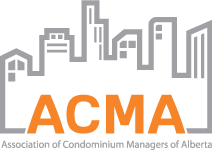Pay Your Condo Fees
CS Management Inc. will accept your payments for your Condominium Corporation. You can pay your Condominium Fees in many ways. The preferred method is to pay your monthly Condominium Contributions by your Corporation’s PAD program, or commonly known as Pre-Authorized debit.
Another way to pay your Condominium Contributions is to mail in a cheque or money order to our office. When submitting a cheque or money order for your Condominium Contributions please ensure that you complete the following:
- Make sure that the Cheque or Money Order is made payable to your Condominium Corporation Number and NOT CS Management Inc.
- Please ensure that the amount you are paying is the current amount that you owe to the Condominium Corporation. If you are unsure you can contact our office at 780 760 6197 to inquire about this amount.
- Verify the date of the cheque or money order to ensure that it is not stale or postdated.
- In the memo line, please include your Unit number and Building number that the payment is being submitted for.
- Ensure that a signature accompanies the payment where required.
- If you are sending in postdated cheques for the calendar year, it is a good idea to also provide a note with these cheques indicating the intent of payment.
- Also, if you require a return receipt for the payment, please also include instructions that indicate this as well.
Following the above process will help ensure that your payment is being applied to the correct Property, Unit and account.
The third way to pay your Condominium Contributions is to attend our office. Our friendly reception staff will assist you in ensuring the best way to pay your Condominiums Fees.
Please find below some common questions regarding Condominium Contributions.
WHAT ARE CONDOMINIUM CONTRIBUTIONS (FEES)?
All Condominium Corporations need money to meet its financial obligations such as paying for insurance premiums, snow removal, grass cutting, repairs to Common Property, supplementing the Reserve Fund, etc. The main source of income for the Corporation is the money paid by the Owners in their Condominium Contributions (often referred to as a Condominium Fee).
Contributions are normally set annually and paid monthly, however the Board of Directors can accelerate these payments to delinquent Owners and can also levy Special Assessments (one or more lump sums) if the Corporation needs to raise extra funds to meet its annual obligations or emergency repairs.
HOW CONDOMINIUM CONTRIBUTIONS (FEES) ARE CALCULATED?
There are two ways that a Condominium Corporation may calculate Condominium Contributions for Unit Owners. The specifics of how Condominium Contributions are to be assessed will be detailed in your Corporation Bylaws. Please ensure that you know your Bylaws and how your fees are to be calculated. Below are some details on how Condominium Fees may be assessed to a Unit Owner.
The first and most common method is to assess Condominium Contributions by Unit Factors. Each Condominium in Alberta has a total of 10,000 Unit Factors. The Unit Factors are like shares in a company and a Unit Owner is assigned their fair share by the Condominium Developer during its inception. You may find the Unit Factors on the Legal Units individual Land Title document or on the Condominium Plan that is registered against the Condominium Corporation Number. A Unit Owner may own a Unit, a storage facility or a titled Parking stall. All these items are assigned a portion of the 10,000 Units Factors. Below is an example of Condominium Fee assessed by Unit Factors.
Example = Legal Unit 101 (The Condominium Unit or Dwelling) has 130 Unit Factors. Legal Unit 1 (The Titled Parking Stall) which is also Unit 101’s parking stall has 7 Unit Factors. The total Unit Factors for Unit 101 and Unit 1 is 137.
When Condominium Contributions are assessed, the total amount of the required annual income is divided by the 10,000 Unit Factors. In this case, we took $250,000.00 as the annual budgeted revenue for the Condominium Corporation and divided it by 10,000 Unit Factors. The total amount equates to $25.00 per Unit Factor.
You than take the total amount of Unit Factors per Unit and multiply that number by $25.00.
Unit 101 and Parking Unit 1 = 137 x $25.00 = $3,425.00. This is the annual amount for that particular Unit. Once the annual amount is determined, you would divide $3,425.00 / 12 Months = $285.42.
$285.42 is the monthly Condominium Contribution for this Unit and is due and payable to the Condominium Corporation on the first of every month unless otherwise stated.
- Please note the above is an example and does not represent an actual Condominium Contribution.
The second way that Condominium Contributions may be assessed or divided are by equal portions or as specified and determined in the Corporation Bylaws. There may be a variety of ways that fees are portioned however the most common is being assessed in equal portion of the Common Expenses. Below is an example of Condominium Fee assessed by equal portion.
Example = A Condominium Corporation has 100 Units. The total amount of Common Expenses for the calendar year is $250,000.00. The formula for this scenario would be $250,000.00 / 100 Units = $2,500.00. This is the annual amount for one particular Unit. Once the annual amount is determined, you would divide $2,500.00 / 12 Months = $208.34.
$208.34 is the monthly Condominium Contribution for this Unit and is due and payable to the Condominium Corporation on the first of every month unless otherwise stated.
- Please note the above is an example and does not represent an actual Condominium Contribution.
FAILURE TO PAY CONDOMINIUM CONTRIBUTIONS OR SPECIAL ASSESSMENTS
The Board of Directors is tasked with budgeting for the needs of the Corporation. Budgets are typically a guess at what the future may hold. After the budget is set and the Condominium Contributions are calculated, the Corporation is to provide a copy of the annual budget as well as the Contributions due and payable for a particular Unit. At that point Unit Owners are responsible to ensure that their fair share is paid.
If a Unit Owner fails to pay their monthly Condominium Contributions, a Condominium Corporation has the right to conduct the following:
- Ask the Owner’s mortgage company to pay the outstanding amounts and add it to the Owner’s mortgage. The Corporation will normally try to contact the Owner before the mortgage company. Avoiding notices, statements and letters from your Board will result in this action.
- Require an Owner’s Tenant to pay the monthly rent to the Corporation to cover the unpaid Condominium Contributions. If an Owner rents out his or her Unit, then this is an option for the Corporation.
- File a caveat against the title to the unit at the owner’s expense. Caveats are a similar to a lien on the property and show that there is an interest by the Condominium Corporation which is registered against the title of the Unit.
- Charge interest to all arrears as stated in the Corporation Bylaws. The Condominium Property Act allows a maximum of 18% to be applied to all Contributions due and payable to the Condominium Corporation. The Corporation Bylaws must be clear and outline how and how much interest is to be applied for this to be enforced.
- A Condominium Corporation can sue the Owner(s) for all outstanding contributions, interest and its full legal fees.
The last process after all other avenues have been exhausted is for the Condominium Corporation to conduct a legal foreclosure on the title to the Unit. This process can get extremely costly, and result in the loss or forfeit of a home.




 © Copyright 2024 CS Management Inc.
© Copyright 2024 CS Management Inc. 